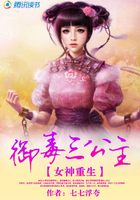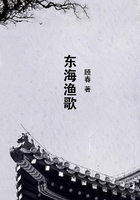He whohad made himself master of the art of living was the Real man of the Taoist.At birth he enters the realm of dreams only to awaken to reality at death.He tempers his own brightness in order to merge himself into the obscurity of others.He is "reluctant, as one who crosses a stream in winter; hesitating as one who fears the neighbourhood;respectful, like a guest; trembling, like ice that is about to melt;unassuming, like a piece of wood not yet carved; vacant, like a valley; formless, like troubled waters." To him the three jewls of life were Pity, Economy, and Modesty.
If now we turn our attention to Zennism we shall find that it emphasises the teachings of Taoism.Zen is a name derived from the Sanscrit word Dhyana, which signifies meditation.It claims that through consecrated meditation may be attained supreme self-realisation.Meditation is one of the six ways through which Buddhahood may be reached, and the Zen sectarians affirm that Sakyamuni laid special stress on this method in his later teachings, handing down the rules to his chief disciple Kashiapa.According to their tradition Kashiapa, the first Zen patriarch, imparted the secret to Ananda, who in turn passed it on to successive patriarchs until it reached Bodhi-Dharma, the twenty-eighth.Bodhi-Dharma came to Northern China in the early half of the sixth century and was the first patriarch of Chinese Zen.There is much uncertainty about the history of these patriarchs and their doctrines.In its philosophical aspect early Zennism seems to have affinity on one hand to the Indian Negativism of Nagarjuna and on the other to the Gnan philosophy formulated by Sancharacharya.
The first teaching of Zen as we know it at the present day must be attributed to the sixth Chinese patriarch Yeno(637-713), founder of Southern Zen, so-called from the fact of its predominance in Southern China.He is closely followed by the great Baso(died 788) who made of Zen a living influence in Celestial life.Hiakujo(719-814) the pupil of Baso, first instituted the Zen monastery and established a ritual and regulations for its government.In the discussions of the Zen school after the time of Baso we find the play of the Yangtse-Kiang mind causing an accession of native modes of thought in contrast to the former Indian idealism.Whatever sectarian pride may assert to the contrary one cannot help being impressed by the similarity of Southern Zen to the teachings of Laotse and the Taoist Conversationalists.In the Tao-teking we already find allusions to the importance of self-concentration and the need of properly regulating the breath--essential points in the practice of Zen meditation.Some of the best commentaries on the Book of Laotse have been written by Zen scholars.
Zennism, like Taoism, is the worship of Relativity.One master defines Zen as the art of feeling the polar star in the southern sky.Truth can be reached only through the comprehension of opposites.Again, Zennism, like Taoism, is a strong advocate of individualism.Nothing is real except that which concerns the working of our own minds.Yeno, the sixth patriarch, once saw two monks watching the flag of a pagoda fluttering in the wind.One said "It is the wind that moves," the other said "It is the flag that moves"; but Yeno explained to them that the real movement was neither of the wind nor the flag, but of something within their own minds.Hiakujo was walking in the forest with a disciple when a hare scurried off at their approach."Why does the hare fly from you?" asked Hiakujo."Because he is afraid of me," was the answer."No," said the master, "it is because you have murderous instinct." The dialogue recalls that of Soshi (Chauntse), the Taoist.One day Soshi was walking on the bank of a river with a friend."How delightfully the fishes are enjoying themselves in the water!" exclaimed Soshi.His friend spake to him thus:
"You are not a fish; how do you know that the fishes are enjoying themselves?" "You are not myself," returned Soshi; "how do you know that I do not know that the fishes are enjoying themselves?"Zen was often opposed to the precepts of orthodox Buddhism even as Taoism was opposed to Confucianism.To the transcendental insight of the Zen, words were but an incumberance to thought; the whole sway of Buddhist scriptures only commentaries on personal speculation.The followers of Zen aimed at direct communion with the inner nature of things, regarding their outward accessories only as impediments to a clear perception of Truth.It was this love of the Abstract that led the Zen to prefer black and white sketches to the elaborately coloured paintings of the classic Buddhist School.Some of the Zen even became iconoclastic as a result of their endeavor to recognise the Buddha in themselves rather than through images and symbolism.We find Tankawosho breaking up a wooden statue of Buddha on a wintry day to make a fire."What sacrilege!" said the horror-stricken bystander."I wish to get the Shali out of the ashes," camply rejoined the Zen.
"But you certainly will not get Shali from this image!" was the angry retort, to which Tanka replied, "If I do not, this is certainly not a Buddha and I am committing no sacrilege."Then he turned to warm himself over the kindling fire.
A special contribution of Zen to Easthern thought was its recognition of the mundane as of equal importance with the spiritual.It held that in the great relation of things there was no distinction of small and great, an atom posessing equal possibilites with the universe.The seeker for perfection must discover in his own life the reflection of the inner light.The organisation of the Zen monastery was very significant of this point of view.To every member, except the abbot, was assigned some special work in the caretaking of the monastery, and curiously enough, to the novices was committed the lighter duties, while to the most respected and advanced monks were given the more irksome and menial tasks.Such services formed a part of the Zen discipline and every least action must be done absolutely perfectly.Thus many a weighty discussion ensued while weeding the garden, paring a turnip, or serving tea.
The whole ideal of Teaism is a result of this Zen conception of greatness in the smallest incidents of life.Taoism furnished the basis for aesthetic ideals, Zennism made them practical.















